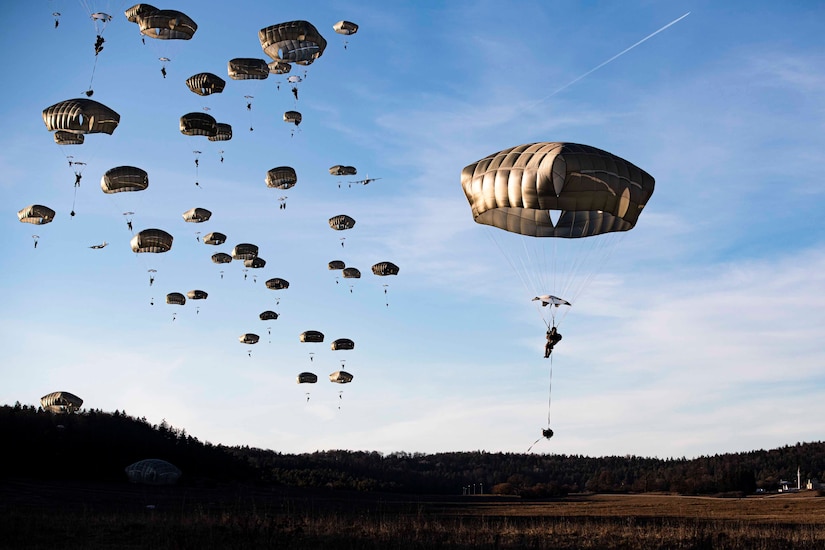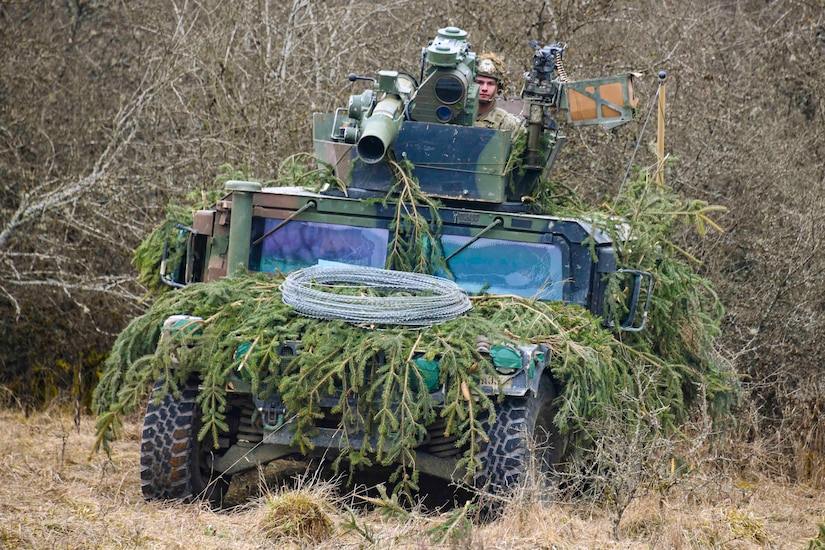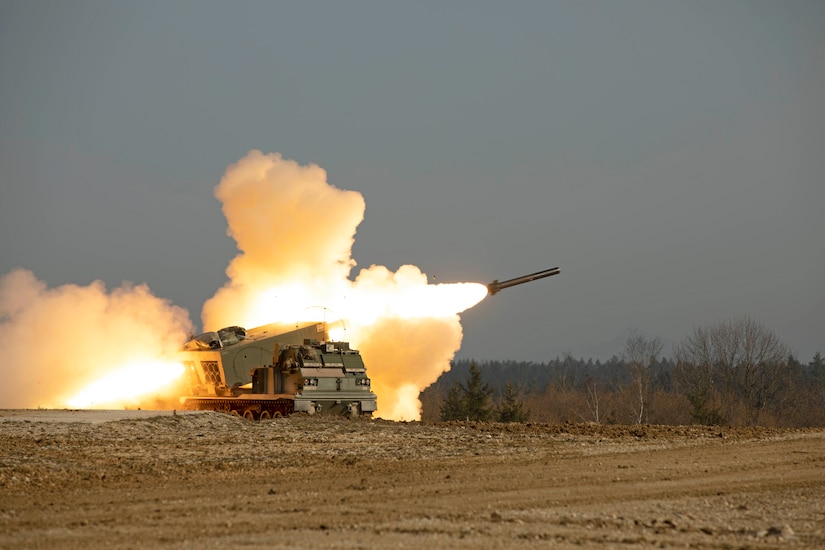
"This planned increase in U.S. personnel underscores our commitment to Germany and the entire NATO alliance," Austin said in his remarks to Germany's Ministry of Defense.
The increase reverses the policy of the previous administration, which looked to drastically reduce the number of U.S. forces based in Germany. President Joe Biden announced a policy to freeze that process, which included moving the headquarters for the Stuttgart-based U.S. European Command and U.S. Africa Command. The president ordered a global posture review to determine how to best station U.S. forces around the world.

"It is great news that not only has the withdrawal of troops...from Germany been halted, but, quite the contrary; we will be able to welcome an additional 500 U.S. troops," Kramp-Karrenbauer said. "This is a very strong signal of our partnership and friendship."
Russia's actions in Georgia, its illegal annexation of Crimea from Ukraine, the continued harassment of Ukraine and other bordering nations, its military build-up, and its increasing use of cyberattacks are concerns in Europe. Germany is no exception; as the economic powerhouse of the continent, Germany is key to responding to these provocations.
"Germany is one of our staunchest allies, and our relationship is built on shared values of freedom, democracy, human rights, and the rule of law," Austin said. "Today, those principles are increasingly under duress. Amid shifting global dynamics and a challenging security environment, Germany will continue to be an important security and economic partner for the United States in the years ahead."

The secretary's visit to Germany is an indication of the value the Biden-Harris administration places on the relationship, officials traveling with the secretary said. It is part and parcel of the administration's effort to revitalize the series of American alliances worldwide. NATO is the crown jewel of the alliance system.
"Strengthening our relationship with Germany is a top priority for the Biden-Harris administration," Austin said. "Underscoring our strong commitment to allies and partners is at the forefront of my agenda, this includes advancing our transatlantic partnership, and increasing cooperation with our NATO allies," he said.
The 500 new U.S. troops will augment existing capabilities, help in the space and cyber domains, and provide more electronic warfare capabilities in Europe. They will "greatly improve our ability to surge forces at a moment’s notice to defend our allies," he said.

Austin briefed Kramp-Karrenbauer on the global U.S. force posture review, and the two also discussed Afghanistan. The German minister reiterated that NATO went into Afghanistan together and will leave together. The two also discussed areas where the United States and Germany can strengthen cooperation on global challenges, such as the COVID-19 pandemic and combating the malign influence of their shared strategic rivals.
Kramp-Karrenbauer said Germany will send a frigate to the Indo-Pacific that also champions freedom of navigation.
Germany is the first European nation Austin is visiting in his current job. "The visit was important to our country because as you heard President Biden say very early on that … we treasure our alliances," he said. "That's how we operate, and we always operate better as a part of a team, and NATO is a great team."
No comments:
Post a Comment